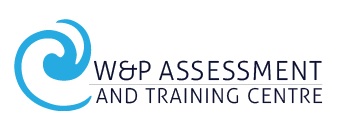 Add My Company
Add My Company

Keep up to date with CQC changes and processes
The current process
Following on from an inspection providers and managers will check the draft report for factual accuracy. We are all familiar with the current factual accuracy checking process which allows providers to tell CQC:
- where information is factually incorrect
- where evidence in the report may be incomplete
The factual accuracy process gives providers the opportunity to review the report detail and consider whether the inspector included all the relevant information. Download the form on the CQC website and provide a brief explanation of the point you are making, make specific references to any supporting information. You must be able to provide the supporting documentary evidence to support the challenge.

Factual Accuracy Process is changing under the Single Assessment Framework
Following on from an inspection providers and managers will check the draft report for factual accuracy, CQC will now send an email to the appropriate registered person so that you can access the draft report. If your organisation has more than one registered person, for example a nominated individual and a registered manager, each registered person will receive the email.
You will now be able to raise one or more points about factual accuracy directly on the report, you will be able to upload evidence to support comments you make against the evidence categories. You will be able to upload examples of exemplary practice to support your factual accuracy submission. CQC will give you a date to return any factual accuracy checks, this will be 10 working days from when you receive the email from CQC, CQC will tell you when you need to submit any check to them, this deadline will not normally be extended.
If there are no factual inaccuracies in the report, you can confirm you’ve reviewed it and CQC will then publish the final version.
What can you correct?
Typographical or numerical errors or, for example, incorrect job titles.
Information that has contributed to a judgement, but which you believe is factually inaccurate. You will need to provide supporting evidence. This must relate to the position at the time of the assessment.
Additional information, or information that was omitted, which you think CQC should consider. For example, you may have further examples of exemplary practice that demonstrate real benefits for people using your service, which may support a rating of outstanding rather than good. Again, this must be relevant to the time of the assessment.
You can also send information about action you have taken since the assessment that addresses the concerns CQC raised with you, or which is included in the draft report. The assessor will consider any further information you send and determine whether the report should be amended. This new information is unlikely to form part of CQC’s decision around final judgements or ratings (where appropriate).
After CQC have considered your points and any supporting information, they will decide whether to amend the draft report and will respond to comments you’ve submitted about factual accuracy.
All factual accuracy responses will be reviewed by another member of CQC’s staff who is independent of the original assessment.
If you have questions or need support on any of the issues raised in this blog, W&P are here to help. Our team has extensive experience in social care, with particular expertise in policies and procedures, and regulatory compliance. For more information or to talk with a member of the team, contact W&P on 01305 767104.
For more information on Factual Accuracy Check is changing for the new Single Assessment Process talk to W&P Assessment and Training Centre


